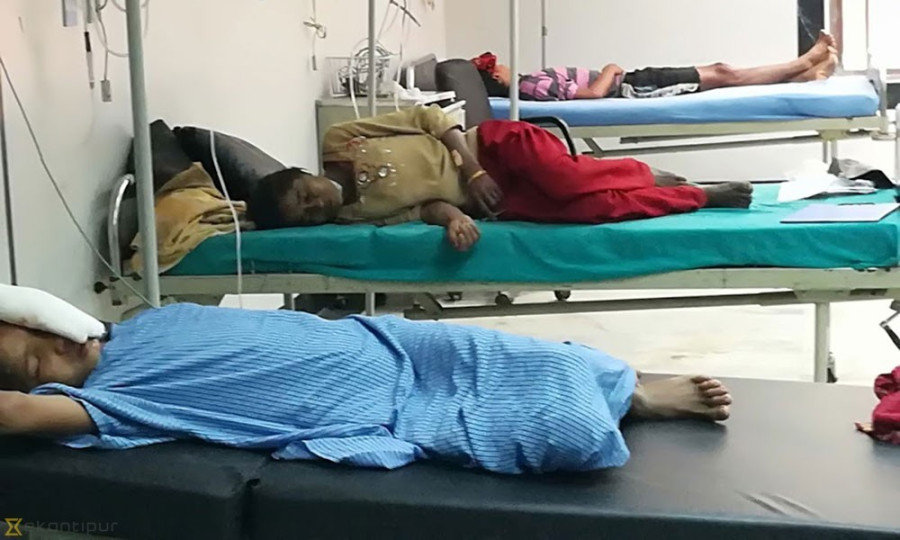Health
Health Ministry to study minimum service standards of state-run health facilities
The move aims to improve the quality of healthcare services being provided by state-run health facilities.
Arjun Poudel
The Ministry of Health and Population has started studying minimum service standards of state-run health facilities throughout the country.
The move aims to improve the quality of healthcare services being provided by state-run health facilities and for evidence-based planning and budgeting, according to Dr Bikash Devkota, chief of Policy, Planning and Monitoring Division at the Health Ministry.
"We have directed directors serving at various health divisions to study hospitals run by the federal government," Devkota, told the Post. "Provincial health directorates and local levels will also study minimum service standards of health facilities of their respective jurisdictions."
The ministry has also allocated Rs 80 million to central hospitals to upgrade standards of their existing services and forwarded the file recommending the Ministry of Finance to release the amount. These hospitals have been asked to purchase equipment and spend on other necessary things to improve service quality.
"We will allocate additional funds if the study shows need to improve service standards," Devkota, added. "Provincial and local health facilities will also get the budget as per their needs."
Improving and strengthening service standards at state-run health facilities is also in line with the National Health Policy, which has stressed the need for quality health services for achieving universal health coverage.
Universal Health Coverage means public access to promotive, preventive, curative, rehabilitative and palliative health services of sufficient quality at affordable cost, according to the World Health Organization.
The ministry has also prepared checklist tools to find the service standards, equipment and conditions, human resources, patient flow, and the satisfaction of the patients. Director-led teams that comprise several technical staffers of various departments would carry out a thorough study of the governance and management, clinical services and supportive services.
Similarly, medical waste management, water supply, power system, safety and security, instrument processing and sterilisation process will be checked.
Devkota said that the checklist has also been sent to provincial health directorates and local levels for their study.
Dr Bhim Singh Tinkari, director at the Family Welfare Division under the Department of Health Services, said that a detailed study of minimum service standards of the health care facilities would help identify the gap in the existing service delivery.
"It will also help the government to allocate the budget and do the planning," said Tinkari. "Health facilities can also spend the budget as per their needs."
Tinkari, who has also been assigned to study the state-run hospitals, said that the study was needed in the changed context, as the country has embraced federalism from unitary system of governance.
With the implementation of the three tiers of government— federal, provincial and local levels, jurisdiction of the health facilities has also been divided into primary, secondary and tertiary levels. Local governments will manage primary level health facilities— health posts, primary health care centres, and up to 15-bed hospitals built at the local level.
Likewise, the provincial government manages district hospitals and provincial hospitals. District hospitals will be upgraded to expertise hospitals, which would ensure at least six expert doctors. The central-level hospitals are being run by the Health Ministry.




 9.7°C Kathmandu
9.7°C Kathmandu















